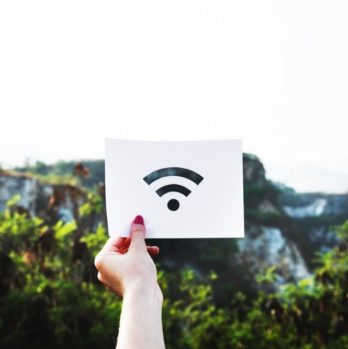Messenger App: Revolutionizing Communication in the Digital Age

Introduction:
Messenger apps have become an integral part of our lives, enabling us to communicate effortlessly with friends, family, and colleagues. These applications have revolutionized the way we connect, providing instant messaging, voice and video calls, and an array of additional features all in one place. In this article, we delve into the world of messenger apps, exploring their evolution, functionalities, and their impact on the way we communicate.
Evolution of Messenger Apps:

From humble beginnings to global dominance, messenger apps have evolved exponentially over the years. Initially, SMS (Short Message Service) was the main medium for text messaging, but it had limitations such as character count restrictions and charges per message. The birth of smartphones and the advent of mobile internet paved the way for a new era of messenger apps.
1. The Rise of Instant Messaging:
In the early 2000s, instant messaging services like AOL Instant Messenger, ICQ, and MSN Messenger dominated the digital landscape. Users could send real-time messages to each other, breaking the barriers of distance and time. These apps became widely popular, especially among teenagers and young adults.
2. The Emergence of Mobile Messaging:
With the exponential growth of smartphones, messenger apps underwent a major shift. WhatsApp, released in 2009, provided a pioneering solution by utilizing internet connectivity instead of traditional SMS. This allowed users to send text, images, videos, and even share their locations seamlessly, all for free. WhatsApp’s success paved the way for numerous other mobile messaging apps to enter the market.
3. The Evolution of Features:
As competition grew in the messenger app market, developers began introducing innovative features to capture users’ attention. Voice and video calling were added, transforming simple text conversations into live communication experiences. Additionally, stickers, emojis, GIFs, and customizable chat backgrounds became popular, allowing users to express themselves creatively.
4. Integration of Other Services:
Messenger apps expanded their functionalities by integrating various services, making them all-encompassing platforms. For instance, Facebook Messenger enabled users to send money, play games, and interact with businesses. Line, a Japanese messenger app, integrated e-commerce, allowing users to shop for a wide range of products within the app. These integrations made messenger apps even more indispensable in our daily lives.
Key Features of Messenger Apps:
Messenger apps offer a plethora of functions that optimize communication and enhance user experiences. Some of the notable features include:
1. Instant messaging: Exchange real-time messages with individuals or groups, breaking the barriers of time and distance.
2. Voice and video calls: Make high-quality voice and video calls with friends and family, bridging the gap between physical distances.
3. Voice messages: Send recorded voice messages for a personal touch and ease of communication.
4. Multimedia sharing: Share photos, videos, audio files, and documents easily within the app.
5. Encryption: Many messenger apps prioritize user privacy by implementing end-to-end encryption, ensuring that conversations are secure.
6. Group chats: Create groups for specific purposes like family, friends, or work, facilitating seamless coordination and collaboration.
7. Integration with other platforms: Connect messenger apps with social media accounts, email, and other services, allowing users to access multiple platforms simultaneously.
8. Bots and AI: Some messenger apps leverage artificial intelligence to provide virtual assistants, chatbots, or automated responses, streamlining interactions.
Impact and Future of Messenger Apps:
Messenger apps have transformed the way we communicate, making our interactions more convenient, expressive, and engaging. They have become an indispensable part of our personal and professional lives, bridging gaps and fostering connectedness.
1. Communication beyond borders:
Messenger apps have transcended geographical boundaries, enabling communication with people from all corners of the world. This level of connectivity has promoted cultural exchange, strengthened relationships, and facilitated global collaboration.
2. Integration of services:
The integration of various services within messenger apps has further streamlined our digital lives. From making payments to shopping, ordering food, booking flights, and more, messenger apps have become one-stop destinations for many everyday tasks.
3. Evolving technology:
With emerging technologies such as augmented reality (AR) and virtual reality (VR), messenger apps are likely to incorporate these features, enhancing user experiences. We can anticipate immersive video calling experiences, shared AR environments, and more personalized interactions.
4. Enhanced privacy and security:
As concerns over privacy and data security continue to rise, messenger apps will likely invest more in implementing robust encryption standards and privacy features to assure users of their protection.
Conclusion:
Messenger apps have come a long way, transforming the way we communicate and connect with others. Their evolution from SMS to feature-rich platforms has revolutionized communication, making it faster, more expressive, and convenient. As technology continues to advance, messenger apps will continue to shape the way we interact, providing seamless connectivity and innovative features that redefine the boundaries of communication in the digital age.











